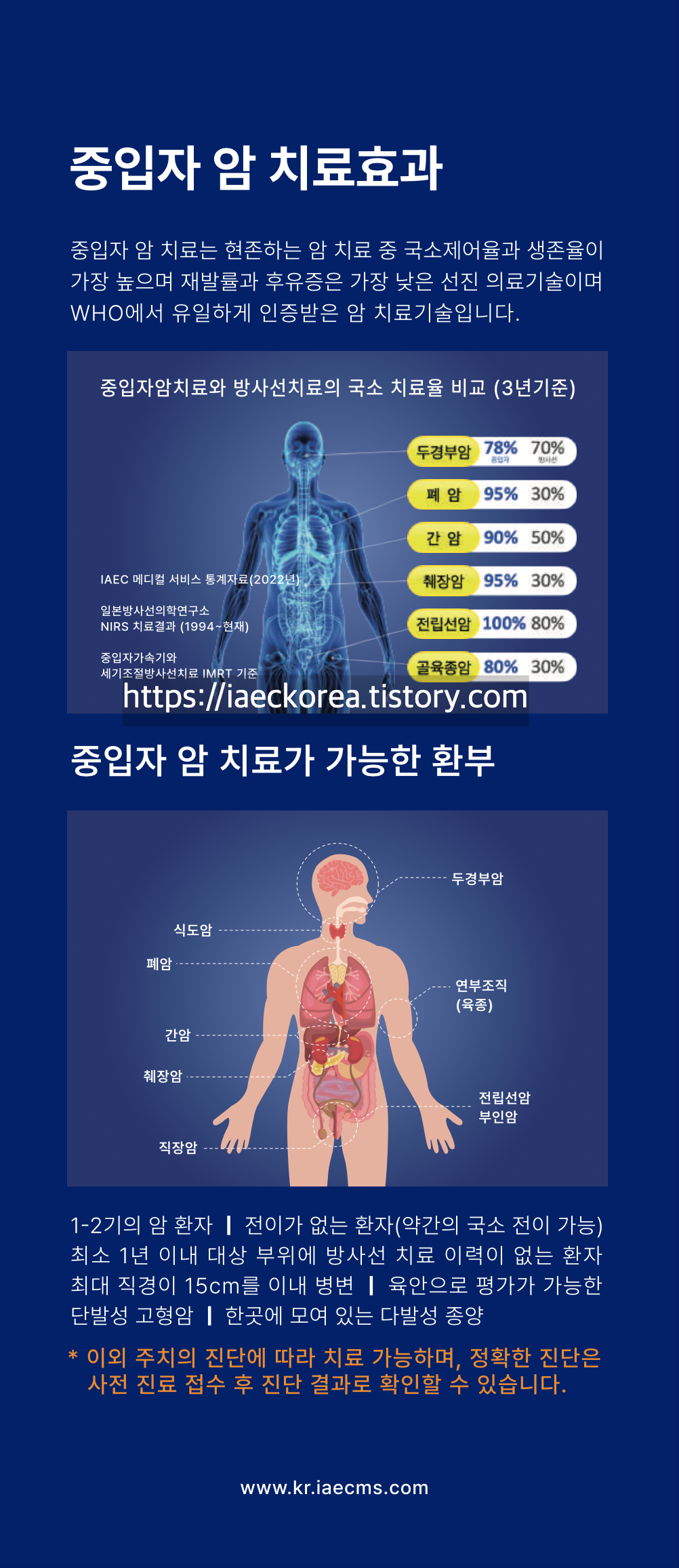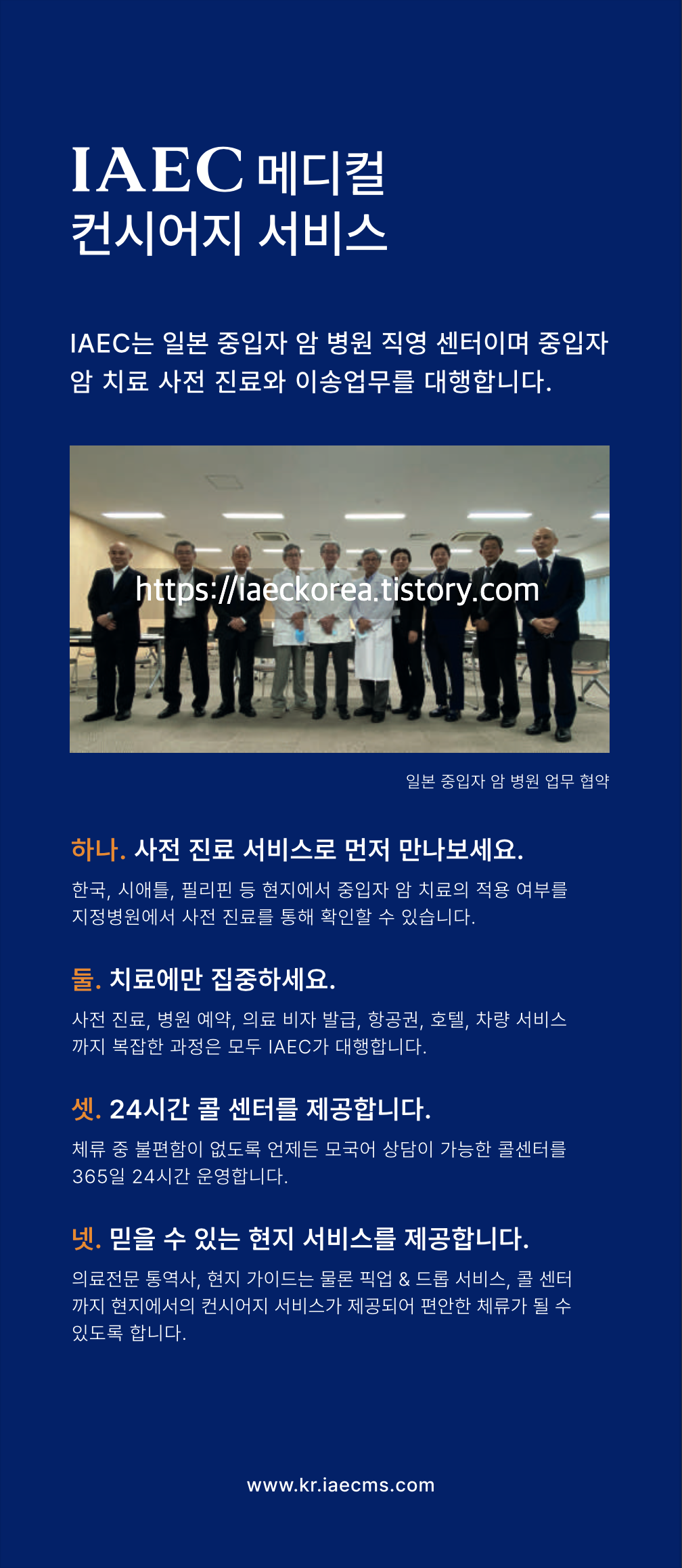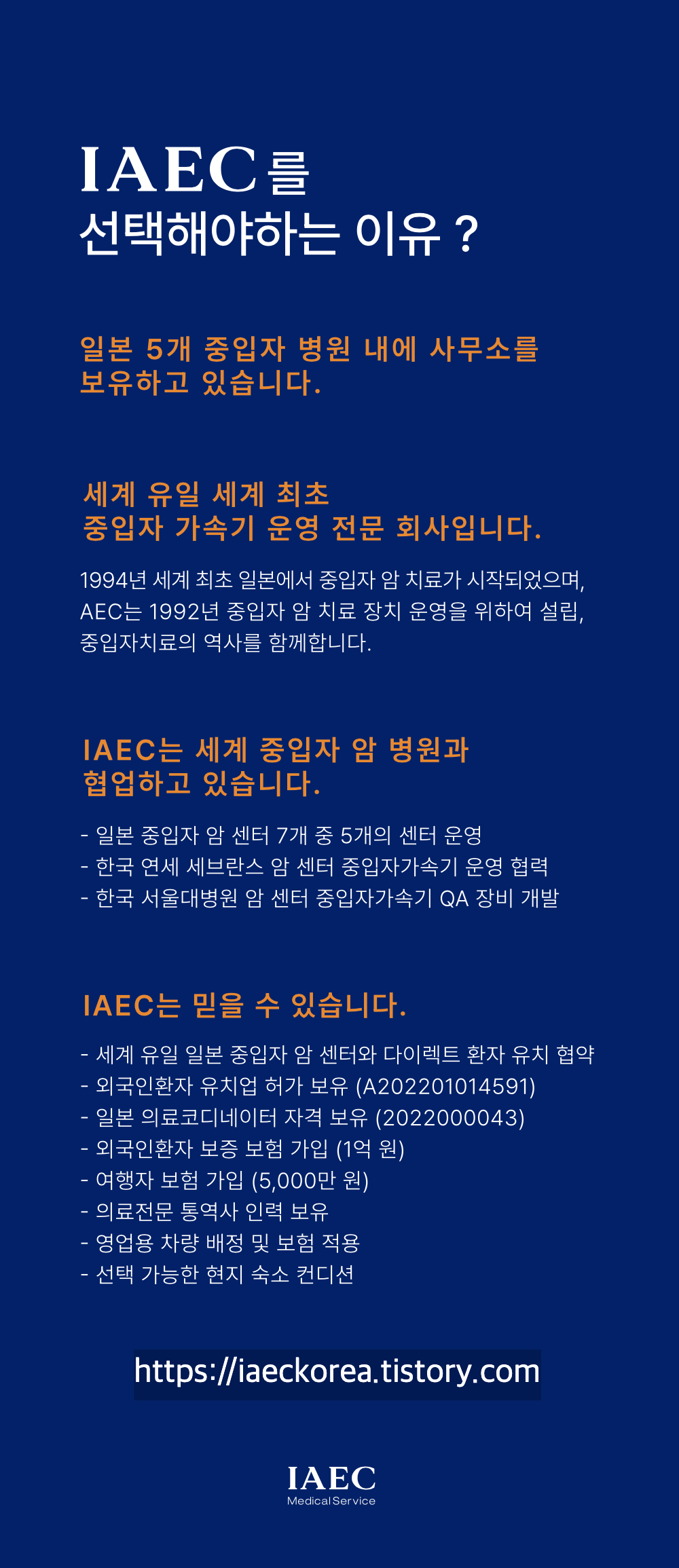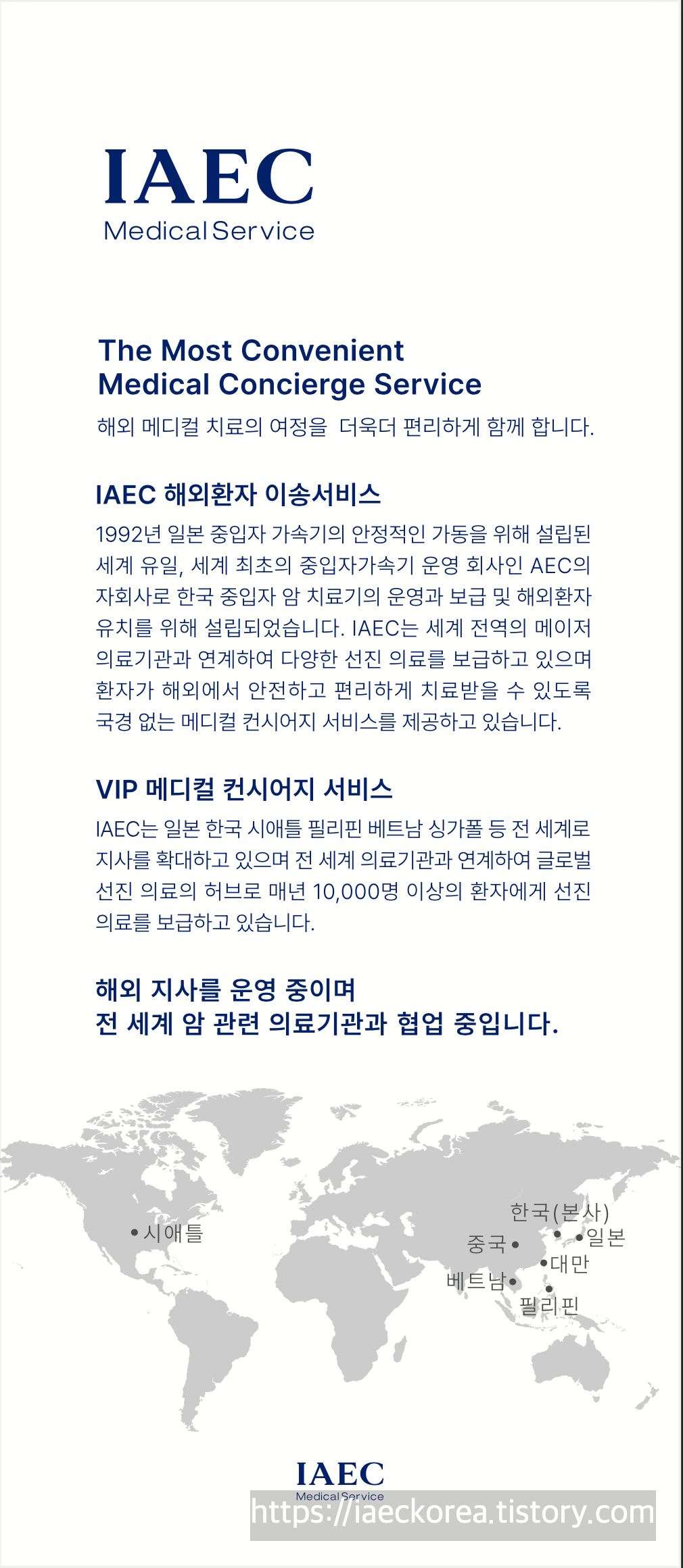
Differences in Servicidal Cancer Treatment
Highest survival and local control rates
The baryon treatment is 90% for liver cancer, 100% for prostate cancer, 80% for lung cancer,
42% cure rate for recurrent cancer
In the case of operational pancreatic cancer, the 5-year survival rate has increased from 20% to 53%
Excellent treatment effects for rare cancers and hypoxic cells such as bone and soft tissue sarcoma, chordoma, malignant melanoma, etc
(NIRS clinical results from 1994 to 2013)
pain-free treatment
Pain-free or pain-free treatment during treatment
a routine treatment
Daily life is possible with outpatient treatment that does not require hospitalization
Treatment of non-surgical affected areas such as head and neck, osteosarcoma, etc. It is possible to treat non-surgical affected areas
recognized stability
WHO-certified treatment technology with more than 7,000 clinical cases in Japanese cancer centers is applied to Japanese medical insurance
treatment with the least aftereffects
Only 0.1mm of precise affected area can be treated
treatment with the lowest risk of recurrence
Excellent killing ability for hypoxic cancer cells
scar-free treatment
Treatment without surgery that leaves no external scarring
a short duration of treatment
Compared to conventional cancer treatment, the fastest treatment time is 4 times a week, less than 3 minutes of treatment, a total of less than 15 times, and an average of 1 month

Treatment Effect of Biparticle Cancer
Biparticle cancer treatment is an advanced medical technology with the highest local control rate and survival rate among existing cancer treatments, the lowest recurrence rate and aftereffects, and the only cancer treatment technology certified by the WHO.
[Cureable area]
esophageal cancer lung cancer
Liver cancer, pancreatic cancer
rectal cancer
head and neck cancer
Soft tissue (breeding)
prostate cancer
gynecological cancer
[Treatable patient]
one to three cancer patients
Patients without metastasis (some local metastasis is possible)
Patients with no history of radiotherapy at the target site within at least one year
Lesions with a maximum diameter of 15cm
Visually assessable single-stage solid cancer
multiple tumors in one place
* Can be treated according to the doctor's diagnosis other than the above

IAEC Medical Concierge Service
IAEC is a direct management center of Japan's baryon cancer hospital and acts on behalf of the pre-treatment and transportation of baryon cancer treatment.
One. Please check out the pre-treatment service first.
Whether to apply baryon cancer treatment in Korea, Seattle, and the Philippines
You can check it through pre-treatment at the designated hospital.
Two. Just focus on the treatment.
Pre-care, hospital reservations, medical visas, airline tickets, hotel, and vehicle services
All complex processes are undertaken by IAEC.
3. Provide a 24-hour call center.
To avoid any inconvenience during your stay, call centers where you can consult your mother tongue at any time
It's open 24 hours a day, 365 days a year.
4. Provide reliable local services.
Medical interpreters, local guides, pick-up and drop services,
Local concierge services are provided to the call center for a comfortable stay.

Why should I choose IAEC?
We have offices in five baryon hospitals in Japan.
Office in Japan Heavy Particle Hospital (Japan Branch)
Chiba Japan Brunch (in QST Hospital)
Gunma Japan Brunch (in GHMC Hospital)
Kanakawa Japan Brunch (in i-ROCK Hospital)
Saga-Himat Japan Brunch (in HIMAT Hospital)
YAMAGATA Japan Brunch (in YAMAGATA Hospital)
It is the world's only company specializing in operating the world's first baryon accelerator. In 1994, the world's first baryon cancer treatment began in Japan, and AEC was established in 1992 to operate baryon cancer treatment devices, sharing the history of baryon therapy.
IAEC is collaborating with the world's baryon cancer hospital.
- Five out of seven heavy particle cancer centers in Japan are operated
- Cooperation in the Operation of Heavy Particle Accelerator at Yonsei Severance Cancer Center in Korea - Development of Heavy Particle Accelerator QA Equipment at Seoul National University Hospital Cancer Center in Korea
The IAEC is reliable.
- World's Only Japan Heavy Particle Cancer Center and Direct Patient Attraction Agreement - Foreign Patient Attraction Permission Holds (A202201014591)
- Qualified as a Japanese medical coordinator (2022000043)
- Foreign patient guarantee insurance (100 million won)
- Traveler insurance (50 million won) - has medical interpreter personnel
- Commercial vehicle allocation and insurance coverage - selectable local accommodation conditions

IAEC Heavy Particle Cancer Treatment Associated Hospital
Japan's baryon cancer treatment is the only advanced medical country in the world to treat baryon cancer with more than 7,000 clinical cases over 30 years and more than 5,000 people a year. AEC, the world's only operator specializing in baryon cancer treatments, operates five baryon centers in i-ROCK, Chiba Prefecture QST Hospital, Gunma GHMC, SAGA HIMAT, Saga Prefecture, and Yamagata University Hospital, and operates offices in the center.
i-ROCK Kanagawa Prefectural Cancer Center
Treatment facilities with state-of-the-art treatment devices opened in December 2015
QST Hospital (formerly NIRS) Quantum Science and Technology R&D Organization
Japan's first heavy particle treatment facility opened in 1994
Gunma Heavy Particle Radiation Medical Center
A university hospital with the latest baryon cancer treatment device opened in March 2013
SAGA-HIMAT Kyushu International Center for Heavy Particle Radiation Cancer
Kyushu's first heavy particle cancer treatment hospital opened in May 2013
Yamagata University Medical Department East Japan Biparticle Center
Japan's latest heavy particle cancer treatment device opens in February 2021
Hyogo Prefectural Particle Radiation Medical Center
A complex treatment facility for baryon cancer treatment and proton cancer treatment was opened in 2002
HIMAK Osaka Heavy Particle Radiation Center
Opened a comprehensive cancer treatment facility in 1994 in connection with the Osaka International Cancer Center

Let's make the journey of overseas medical treatment more convenient.
IAEC Overseas Patient Transfer Service
Founded in 1992 for the stable operation of the Japanese baryon accelerator, it is a subsidiary of AEC, the world's only and first baryon accelerator operating company, and was established to operate and distribute baryon cancer treatments in Korea and attract overseas patients. IAEC is working with major medical institutions around the world to distribute a variety of advanced healthcare services and provides borderless medical concierge services to ensure that patients are safely and conveniently treated overseas.
VIP Medical Concierge Service
IAEC is expanding its branches around the world, including Japan, Korea, Seattle, Philippines, Vietnam, and Singapore, and is a hub of global advanced medical care in connection with medical institutions around the world, supplying advanced medical care to more than 10,000 patients every year.
We are running an overseas branch and working with cancer-related medical institutions around the world.





댓글